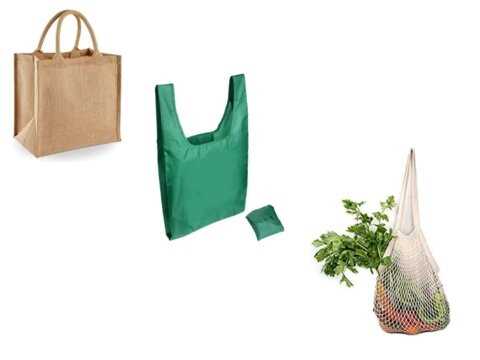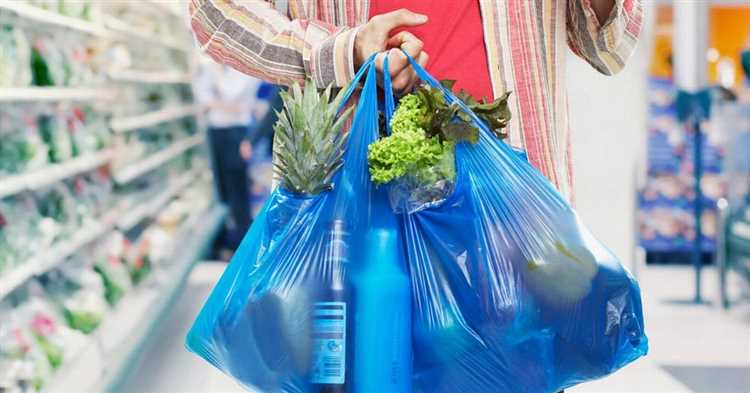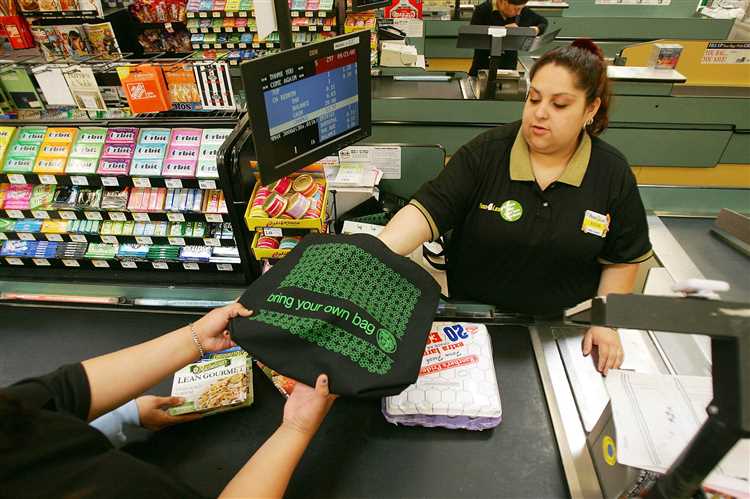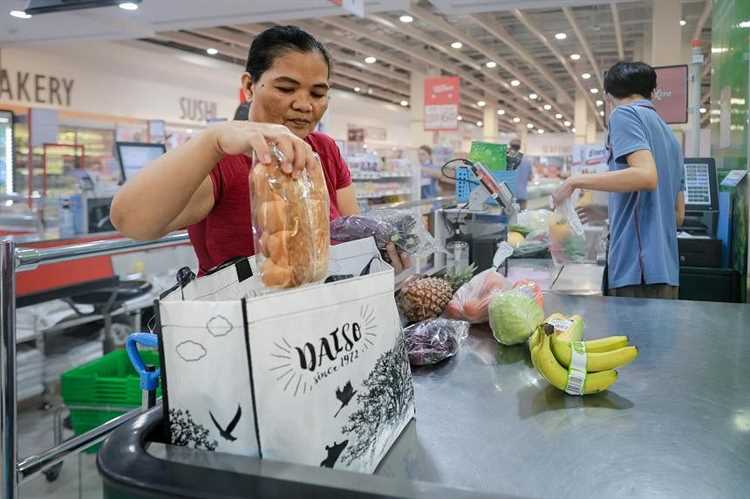
In recent years, there has been a growing concern over the impact of plastic bags on the environment. Single-use plastic bags have been a staple in supermarkets for decades, but their negative effects on wildlife, ecosystems, and human health cannot be ignored. As a result, many supermarkets around the world are now taking steps to move away from plastic bags and offer more sustainable alternatives.
One of the most common alternatives to plastic bags is the use of reusable bags. These bags are usually made of durable materials such as canvas or recycled plastic, and can be used multiple times. By encouraging customers to bring their own reusable bags, supermarkets are not only reducing the amount of plastic waste produced, but also promoting a more environmentally conscious lifestyle.
Another solution that some supermarkets are implementing is the introduction of biodegradable bags. These bags are made from materials that break down more easily in the environment, reducing the long-term harm caused by plastic pollution. While biodegradable bags may still have some environmental impact, they offer a more sustainable option compared to traditional plastic bags.
In addition, supermarkets are also exploring innovative packaging solutions to reduce their reliance on plastic. Some have started using compostable packaging made from natural materials such as cornstarch or sugarcane. Others are experimenting with packaging-free options, allowing customers to bring their own containers and fill them with products like grains, spices, or liquid soap. These initiatives not only reduce plastic waste, but also encourage a more mindful approach to consumption.
While the transition away from plastic bags may present some challenges for supermarkets, many are recognizing the importance of taking action to protect the environment. By embracing alternative solutions and educating their customers about the benefits of reducing plastic waste, supermarkets can play a significant role in creating a more sustainable future.
- The Need for Change: Supermarkets and Plastic Bags
- The Problems with Plastic Bags
- The Role of Supermarkets
- Environmental Impact: Plastic Bags and Pollution
- Consumer Shift: Demand for Plastic Bag Alternatives
- Innovative Solutions: Supermarkets Embracing Change
- Benefits for Supermarkets: Cost savings and Marketing Opportunities
- Question and answer:
- Why are supermarkets moving away from plastic bags?
- What are the alternative solutions to plastic bags?
- What are the benefits of using reusable bags?
- How are supermarkets promoting the use of reusable bags?
- What challenges do supermarkets face in transitioning away from plastic bags?
- Why are supermarkets moving away from plastic bags?
- What are some alternative solutions that supermarkets are implementing?
The Need for Change: Supermarkets and Plastic Bags

Plastic bags have long been a staple at supermarkets around the world, providing a convenient way for customers to transport their purchases. However, the environmental impact of plastic bags cannot be ignored. These bags are not biodegradable and often end up in landfills or polluting our oceans and rivers.
As awareness of the detrimental effects of plastic bags on the environment grows, there is a growing need for change. Supermarkets play a significant role in contributing to plastic bag waste, and it is essential for them to take responsibility and embrace alternative solutions.
The Problems with Plastic Bags
Plastic bags have numerous negative impacts on the environment. They are made from non-renewable resources such as petroleum, which contributes to the depletion of natural resources. Additionally, plastic bags take hundreds of years to break down, meaning they persist in the environment for an extended period.
Not only do plastic bags take a significant amount of time to decompose, but they also pose a severe threat to wildlife. Animals often mistake plastic bags for food, leading to choking hazards and digestive blockages. Marine life, in particular, is vulnerable to the dangers of plastic bags, with many turtles, whales, and seabirds falling victim to ingesting or becoming entangled in them.
The Role of Supermarkets

Supermarkets are major contributors to the issue of plastic bag pollution. Thousands of plastic bags are distributed daily, leading to vast amounts of plastic waste ending up in landfills and ecosystems. Supermarkets have a unique opportunity to drive change by implementing alternative solutions.
Many supermarkets have already taken steps towards reducing their reliance on plastic bags. Some have introduced reusable bags made from eco-friendly materials like cotton or jute, encouraging shoppers to bring their own. Others have started charging small fees for plastic bags, incentivizing customers to opt for more sustainable options.
By taking a proactive approach, supermarkets can not only reduce their environmental impact but also inspire their customers to make more sustainable choices. Transitioning away from plastic bags not only benefits the environment but also improves a supermarket’s reputation as an eco-conscious retailer.
Environmental Impact: Plastic Bags and Pollution
Plastic bags have a significant impact on the environment and contribute to pollution in several ways. One of the main concerns is their contribution to marine pollution. Plastic bags often end up in oceans and rivers, where they pose a significant threat to marine life. Marine animals such as turtles, fish, and seabirds can mistake the bags for food and end up ingesting them, leading to injury or death.
In addition to marine pollution, plastic bags also contribute to land pollution. When disposed of improperly, they can end up in landfills and take hundreds of years to decompose. As they break down, they release harmful toxins into the soil and water, threatening ecosystems and potentially contaminating food sources.
Plastic bags also have a significant carbon footprint. They are typically made from non-renewable resources, such as petroleum, which contributes to greenhouse gas emissions and climate change. Additionally, the production process itself requires energy and releases pollutants into the air and water.
Furthermore, the disposal of plastic bags is a major challenge. Many bags end up as litter in the environment, causing visual pollution and harming wildlife. Even when disposed of properly, recycling plastic bags can be difficult and costly, resulting in many ending up in incinerators or landfills.
Overall, the environmental impact of plastic bags and the pollution they cause is significant. The move towards alternatives, such as reusable bags or biodegradable options, is crucial in reducing pollution and protecting the environment for future generations.
Consumer Shift: Demand for Plastic Bag Alternatives

The growing awareness about the harmful effects of plastic on the environment has led to a significant consumer shift towards sustainable alternatives to plastic bags. With increasing concerns about pollution and the need for sustainable practices, consumers are demanding more eco-friendly options.
Many supermarkets have noticed this consumer shift and are responding to the demand by offering alternative solutions. These alternatives include reusable bags made from materials like cotton, jute, or recycled fabrics. These bags are not only more durable but also help reduce the use of single-use plastic bags.
Consumers are also embracing options such as paper bags or biodegradable bags made from materials like cornstarch. These bags are easily recyclable or compostable, reducing their impact on the environment. Some supermarkets have even introduced innovative solutions like mushroom-based packaging that is biodegradable and can be safely composted.
The demand for plastic bag alternatives is not limited to supermarkets. Shoppers are now actively seeking out stores and brands that provide sustainable packaging options. This shift in consumer behavior has forced industries beyond supermarkets, such as clothing retailers and online shopping platforms, to rethink their packaging strategies as well.
While some consumers have made the switch to alternative bag options voluntarily, governments and local authorities have also implemented regulations to reduce the use of plastic bags. This has further fueled the demand for plastic bag alternatives as consumers adapt to these changes.
Overall, the consumer shift towards plastic bag alternatives reflects a growing awareness and concern for the environment. As more individuals recognize the importance of sustainable practices, the demand for eco-friendly alternatives will likely continue to rise.
Innovative Solutions: Supermarkets Embracing Change
As the push for reducing plastic waste continues to gain momentum, supermarkets are embracing innovative solutions to meet the demands of eco-conscious consumers. These solutions not only reduce plastic bag usage but also provide alternative options that are both practical and sustainable.
One such solution is the introduction of reusable bags made from recycled materials. Supermarkets are offering sturdy and stylish bags that shoppers can purchase and use for all their grocery needs. These bags are not only durable but also help promote a zero-waste lifestyle.
Another innovative solution is the implementation of bulk sections in supermarkets. By offering a wide range of products in bulk bins, such as grains, nuts, and spices, shoppers can bring their own reusable containers and eliminate the need for single-use plastic packaging. This encourages shoppers to buy only the amount they need, reducing food waste as well.
Supermarkets are also partnering with local farmers and suppliers to promote the use of sustainable packaging. By sourcing products that are packaged using eco-friendly materials like biodegradable or compostable packaging, supermarkets are actively working towards reducing their carbon footprint.
|
Furthermore, supermarkets are taking advantage of technological advancements to implement innovative solutions. Self-checkout systems are being introduced to reduce the use of plastic bags. Shoppers can now use their own bags or opt for paper bags instead. |
In addition, some supermarkets are embracing the use of digital platforms to offer paperless receipts. By sending electronic receipts to customers’ email addresses or mobile apps, supermarkets are reducing the need for paper receipts and the associated wastage. |
Overall, supermarkets are actively embracing change and finding innovative solutions to reduce plastic waste and promote sustainability. By offering reusable bags, bulk sections, sustainable packaging, and leveraging technology, they are leading the way in creating a greener future.
Benefits for Supermarkets: Cost savings and Marketing Opportunities

Switching from plastic bags to alternative solutions can bring several benefits to supermarkets. One of the main advantages is cost savings. Plastic bags come at a price, and by eliminating them from their operations, supermarkets can reduce their expenses. Alternative solutions like reusable bags or paper bags may have a higher initial cost, but in the long run, they can prove to be more cost-effective.
Additionally, implementing alternative solutions can provide supermarkets with marketing opportunities. In recent years, there has been a growing trend towards eco-friendly practices and sustainability. By taking a stance against plastic bags, supermarkets can position themselves as environmentally conscious businesses. This can attract environmentally conscious customers who prefer to support businesses that align with their values. Supermarkets can highlight their commitment to the environment through promotional materials, signage, and social media campaigns, effectively marketing themselves as eco-friendly establishments.
Furthermore, by offering alternative solutions, supermarkets can differentiate themselves from their competitors. They can emphasize their commitment to sustainability and attract customers who prioritize environmentally friendly shopping options. This can help supermarkets build customer loyalty and establish a positive brand image.
In conclusion, moving away from plastic bags and adopting alternative solutions can bring several benefits to supermarkets. From cost savings to marketing opportunities, supermarkets can position themselves as environmentally conscious businesses and attract like-minded customers.
Question and answer:
Why are supermarkets moving away from plastic bags?
Supermarkets are moving away from plastic bags because plastic bags are one of the major contributors to environmental pollution. They do not biodegrade, and instead, take hundreds of years to break down. This has led to widespread pollution of oceans, landfills, and other ecosystems. In addition, plastic bags are made from non-renewable resources, such as petroleum, which further contributes to environmental degradation.
What are the alternative solutions to plastic bags?
There are several alternative solutions to plastic bags. Many supermarkets are now encouraging customers to bring their own reusable bags. Some supermarkets have also started offering biodegradable bags that are made from renewable materials, such as cornstarch or plant fibers. Another option is the use of paper bags, although they also have some environmental impact due to the amount of energy and resources required to produce them.
What are the benefits of using reusable bags?
Using reusable bags has several benefits. First, it reduces the amount of plastic waste generated, which helps to protect the environment. Reusable bags are more durable and can be used multiple times, reducing the need for single-use plastic bags. They can also save customers money in the long run, as some supermarkets offer incentives or discounts for bringing your own bags. Additionally, using reusable bags can help raise awareness about the negative impact of plastic bags on the environment.
How are supermarkets promoting the use of reusable bags?
Supermarkets are promoting the use of reusable bags in various ways. They often offer reusable bags for sale at a low price near the cash registers, making them easily accessible to customers. Some supermarkets also provide incentives, such as discounts or loyalty points, to customers who bring their own bags. In addition, many supermarkets have implemented campaigns and educational programs to raise awareness about the benefits of using reusable bags and the impact of plastic bags on the environment.
What challenges do supermarkets face in transitioning away from plastic bags?
Supermarkets face several challenges in transitioning away from plastic bags. One of the main challenges is changing customer behavior and encouraging them to bring their own reusable bags. Many customers are used to the convenience of plastic bags and may resist the change. Supermarkets also need to find alternative packaging solutions for certain products, such as fresh produce or frozen items, where plastic bags have traditionally been used. Additionally, supermarkets need to address the increased cost of using alternative bag materials, as plastic bags are usually cheaper to produce.
Why are supermarkets moving away from plastic bags?
Supermarkets are moving away from plastic bags because of the negative impact they have on the environment. Plastic bags are not biodegradable and can take hundreds of years to break down, leading to pollution and harm to wildlife. Supermarkets are recognizing the need to reduce their plastic waste and are implementing alternative solutions.
What are some alternative solutions that supermarkets are implementing?
Supermarkets are implementing a variety of alternative solutions to reduce their reliance on plastic bags. Some are offering reusable bags made of fabric or other materials, which can be used multiple times. Others are introducing paper bags, which are biodegradable and easier to recycle. Some supermarkets are even encouraging customers to bring their own bags by offering incentives or discounts.
